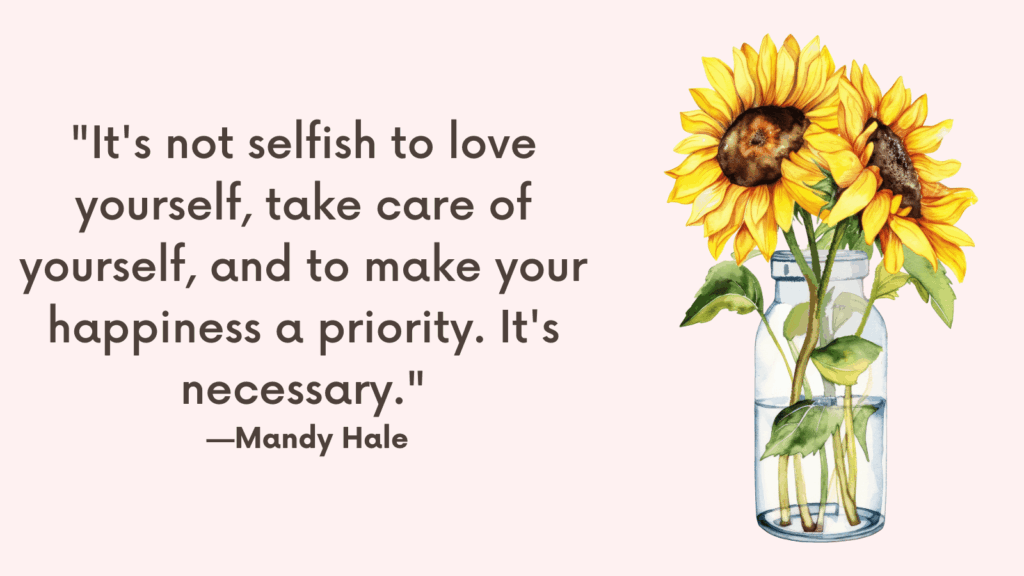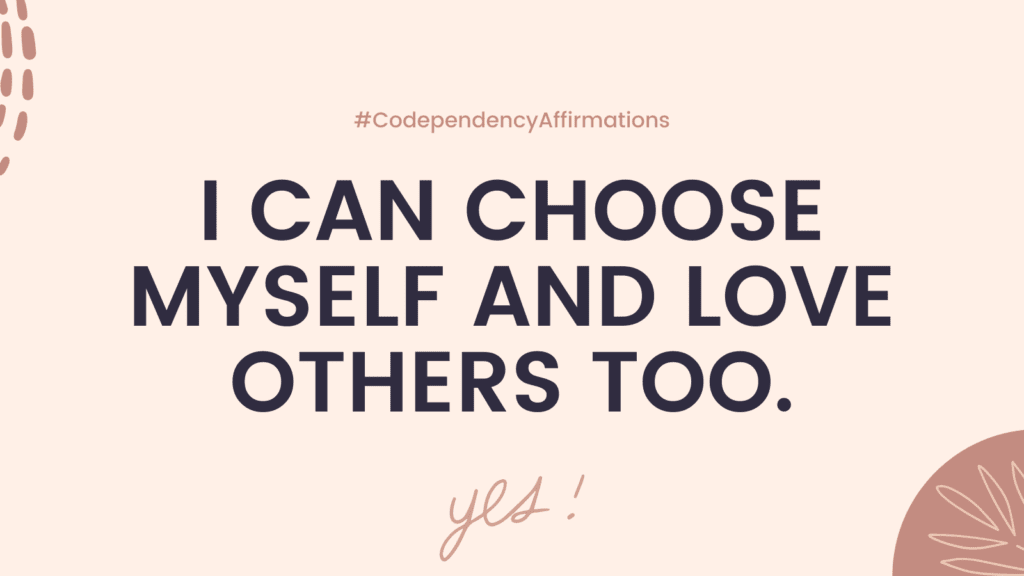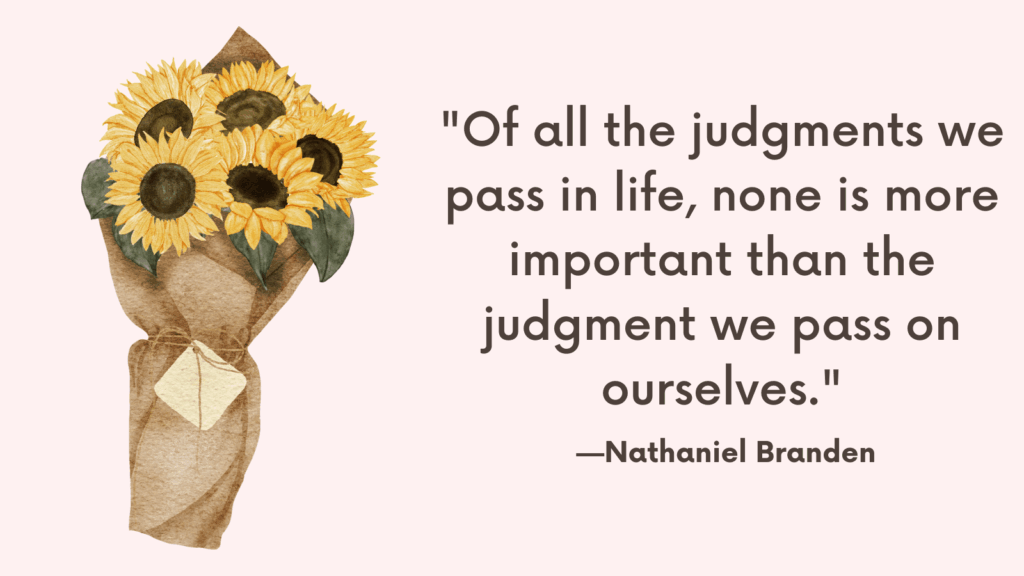Today, you’re going to learn how to recover from love addiction.
What Is An Addiction?
Addiction is composed of three elements:
(1) obsession,
(2) a feeling of being out of control, and
(3) continuation of a behavior despite adverse physical or psychological consequences.
Two other elements that could be present are:
(1) tolerance (progressively needing more of the object of addiction to get the same effect), and
(2) withdrawal symptoms.
This means that addiction has more to do with how the object of addiction is affecting the individual’s life than it does with the object of addiction itself or its quantity. (*)
Related: Overcoming Addiction: How to Get Any Kind of Addiction Under Control for Good?
What Is Love Addiction?
Addictive love, also referred to as “codependency,” or, “love avoidance,” is an inclusive term in that it includes men and women, single or coupled.
Love, itself, is not the problem. True love is life-giving and healing.
It’s how we use love.
The key to know whether or not you have a love addiction is to ask yourself, “Am I using love to avoid the stress that contemporary life produces?”
When we become driven to seek quick fixes in the form of substances, processes outside of ourselves, or even people, addictions often result.
It is important to keep in mind that our need to experience love is real.
The goal here is to identify unhealthy addictive elements, release them and bring in healthy love.
It is also important to keep in mind that relationships are not black and white – most relationships have characteristics of both addictive and healthy love. (*)
Related: Codependent Relationship: 8 Warning Signs of a Codependent Relationship – & How to Recover From One
Healthy Love vs. Toxic Love
We do need to share love in order to bloom to our fullest.
The following are signs of healthy love:
- Enough space for oneness and separateness
- brings out the best qualities in yourself and others
- healthy emotional boundaries
- a high level of trust
- a feeling of safety
- deep and true intimacy
- freedom to express feelings and thoughts
- acceptance of differences and limitations
- acceptance and respect of commitment
- openness to change
Healthy, mature love believes “I am loved because I am love.”
Toxic, immature love, on the other hand, believes “I love you because I need you.”
You may think of a child’s love as generous and innocent; but children are not yet capable of spiritual love – their love is egocentric. They love in order to survive.

Top 9 Love Addiction Symptoms
#1. You Believe That You Receive Love or Validation Only If You Earn It
This root belief comes from “I’m unlovable,” and, “I’m not enough.”
Such belief might help you get high grades and earn promotions at work, but it also prevents you from enjoying healthy romantic relationships.
This belief is a sign that you’re living with an extra layer of shame, judgment, and lack of acceptance of self, especially when it comes to your weaknesses and imperfections.
Related: 10 Signs You Were Shamed In Childhood
#2. You Prioritize The Needs of Others Before Your Own
You tend to find yourself bending over backward for your relationship, but you end up feeling unappreciated and starved for more love.
Your partners don’t seem to be as invested in the relationship as you are.
You’ve always felt rejected for expressing your needs or even having them, and you adapted by prioritizing other people’s needs before your own because deep down inside, you don’t feel that you are worthy of having your needs met.
#3. You Tend To Put Your Relationship at The Center of Your World
When you get into a relationship, you tend to merge with your partner and put your relationship at the center of your world.
Your identity and priorities revolve around that relationship. Your partner becomes the only person who can make you feel okay, but when the relationship is in turmoil or comes to an end, you feel like nothing is left for you to live for.
Your root belief here is “I’m not okay on my own.”
Related: How to Be Whole on Your Own: 3 Crucial Steps to Feel Complete and Whole
#4. You Struggle With Intimacy
You’ve been hurt so badly before that even if on a cognitive level you know you’ve over that pain, your subconscious still associates vulnerability with pain
Your root belief is that you cannot trust and therefore it is not safe to open your heart, and no matter how your partner proves themselves, you still find it hard to open the gates of your heart.
You might get in a relationship, but ad the relationship progresses, you struggle more and more with emotional intimacy.
Related: Building Intimacy: How to Stop Self-Sabotage and Improve Intimacy In Your Relationship?
#5. You Need Constant Validation From Your Partner
Being unable to self-soothe, you constantly seek validation from partners.
You end up avoiding emotional intimacy, and seeking fantasy, and chasing highs.
#6. You Struggle With Boundaries Setting
Boundaries suggest marking our psychological territory, defining what we are willing to tolerate and what we aren’t willing to tolerate.
When our emotional boundaries are too weak, it becomes difficult to know which feelings and thoughts belong to whom, and who is responsible for which actions.
Examples of weak boundaries include:
- having intimate conversations with someone with whom you have not established trust yet
- being sexual solely to meet someone else’s needs or desires
- disregarding personal values to please someone
- letting abusive people remain in your life
On the other hand, when our boundaries are too rigid, we become so closed off that others cannot get close.
Examples of rigid boundaries include:
- trusting no one
- refusing to yield or compromise
- refusing to share thoughts, feelings, energy with others
- withdrawing and becoming physically rigid
- being intimate only when sexual
- avoiding love and being vulnerable
- lacking the ability to empathize or show feelings
A healthy boundary is permeable. It allows the exchange of thoughts, feelings, and actions while protecting our psychological territory.
Related: How to Firmly Establish and Enforce Healthy Emotional Boundaries?
#7. You Fear Letting Go
While loss is painful, those who don’t have a love addiction will face their pain, trusting that it will end and that letting go is in their best interest.
When love addiction is so intense, so is the fear of letting go. As a result, you may find yourself stuck in a toxic relationship for years.
Addiction makes you believe that you won’t be able to handle the pain.
Another reason why letting go is so difficult when you struggle with love addiction is the illusion of safety and predictability addiction provides.
Related: Healing Abandonment Issues In Relationships: How to Overcome Fear of Abandonment?
#8. You Try to Change or “Fix” Others
Love addiction involves attempts to change others.
This is mainly because we attach our happiness to the other person and so we believe that if this person is to change, then we will be content.
Rather than putting the blame or the problem on the other person, try asking yourself, why do you need your partner to change? How does your relationship fit you?
Related: Codependency Savior Complex: 14 Clear Codependency Signs & How to Overcome It
#9. You Need Others to Feel Complete
Love addicts need others to feel whole and secure.
Anxiety occurs whenever this arrangement is threatened.
Love addicts demand unconditional love, yet they won’t love themselves unconditionally.
They overlook their ability to affirm themselves and hold onto the belief that someone else will do it for them.
As a result, their self-esteem becomes dependent on other people’s validation.
Related: Learning To Love Yourself : 30 Day Self-Love Challenge
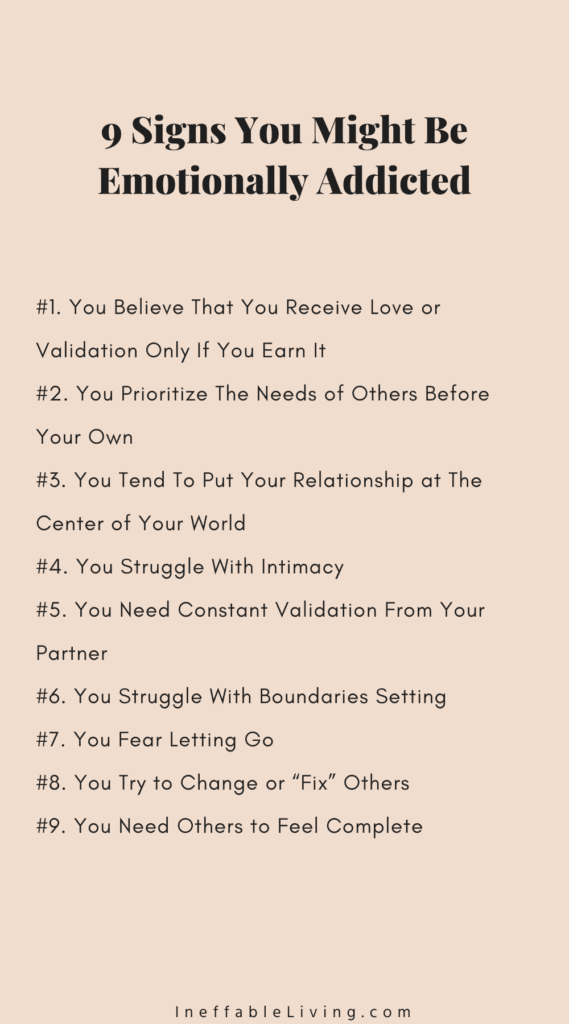
Love Addiction Withdrawal Symptoms
A 2018 paper outlined specific criteria for love addiction, including:
- You can’t keep yourself from contacting the person.
- You have a strong urge to stay connected, even if they don’t feel the same way.
- You try to maintain the relationship even if it becomes toxic.
- You spend a lot of time thinking about the person.
- Your feelings cause you to isolate yourself and cut back on your regular hobbies.
- Your romantic feelings are causing problems for you at work, school, or home.
- You go against your personal values and may even break laws to maintain the relationship.
It’s Not Just About The Ex
We often end up re-creating the emotional experience of how we were wounded as children.
Unless we heal our childhood pain, we will continue to repeat the same painful emotional experience—just with different people.
Not because we want to get hurt again—but because we want to master a situation in which we felt helpless as children.
Freud called this “repetition compulsion.” On a subconscious level, a part of you imagines that you can go back and heal that wound from long ago by engaging with somebody familiar—but also new.
However, choosing the familiar partner doesn’t help heal the wound, it only reopens it and makes you feel even more inadequate and unlovable.
A breakup is also an opportunity for you to learn something about yourself so you won’t keep repeating the same pattern.
To break the old pattern, you’ll need to stop and assess the lessons before you can replace old habits with healthier ones.
As you begin to practice healthier habits, you’ll slowly discover that your happily-ever-after relationship isn’t going to be with the next partner, but with you.
You’ll realize that love is something you find within – self-love. It is the foundation needed before a healthy partnership with another is possible.
How to practice self-love?
By giving yourself the love you often dream about receiving from others.
Practical Exercise
Oxytocin, also known as the “love hormone” or the “bonding drug,” is now believed to be closely related to developing an addiction. (*)
One way to reduce the effect of this hormone and in turn reduce your withdrawal symptoms after a breakup is to imagine yourself being with someone else. This person could be an imaginary one.
Allow yourself to feel the good feelings that come with these images.
Top 5 Tips On How To Recover From Love Addiction
#1. Awareness: Acknowledge the Role Addictive Love Plays In Your Life
The first step to change anything is awareness.
Without acknowledging the addictive aspects of your relationship, you risk remaining trapped in the denial stage.
Reading through the signs of love addiction, did you relate to any of them?
#2. Make the Decision to Move Out of Addiction
Once you acknowledge your addictive behaviors in your relationships, decide whether to maintain the status quo or to work toward change.
It’s important to make this decision and keep reminding yourself of why you want to change as you move out of addiction. You may expect things to get worse before they get better, such as experiencing withdrawal symptoms. These are signs that your process is in motion.
If you find yourself resisting change, answer the following question, “What do I get from my addictive love?”
Perhaps you gain feelings of security, a sense of belonging, comfort, or a meaning in your life.
Then write down how your addictive love is hurting you and compare the pros and the cons. Are the benefits worth it? Try to be honest with your answers.
#3. Let Go of the Relationship
If your love addiction is keeping you stuck in a toxic relationship, start your healing journey but letting this relationship go.
Signs you need to let go of your relationship:
- Once the excitement wears off, you could see that you are not compatible.
- You are putting much more energy into the relationship than your partner is.
- You or your partner starts to pull back.
- You don’t feel safe anymore in the relationship.
- You are blamed for the problems in the relationship.
- Your intuition knows it is time to move on.
Letting go can be the most difficult thing you do in your healing journey. Here are some suggestions to help you:
1. Reach out to safe people for support.
2. Try to live one day at a time, especially if you’re experiencing withdrawal symptoms. Remind yourself that it gets worse before it gets better and that this is a sign you’re moving out of addiction toward healing.
3. Challenge your negative beliefs. Start talking to yourself and questioning your automatic negative beliefs. Answer the following questions:
· Do I have experiences that would contradict my beliefs in any way?
· What evidence do I have that what I believe is actually true?
· Am I falling into a thinking trap (e.g., catastrophizing or all-or-nothing treatment)?
· What would I tell a friend if he/she had the same thought?
· Am I confusing a belief with a fact?
· Am I basing my conclusion mostly on my feelings or on the true evidence?
4. Soothe yourself using techniques such as deep breathing, mindfulness meditation, grounding exercises.
5. Repeat positive affirmations to remind yourself that you made the right decision. Tell yourself: “This is healing pain, and I will grow from it.”
6. Invest more energy in taking care of yourself and pursuing your own interests.
7. Find ways to give and help others. This can lift your mood and increase your sense of purpose.
Related: Dealing With a Breakup: How to Heal Properly and Love Yourself Again?

#4. Address Your Fears
The paradox of personal change is that even though we have a strong urge to grow, we often fear and resist change.
This fear can create a mental impasse internally, making it impossible to change.
Here are some ways to help you face your fears:
Write a letter from the part of you that resists change to express its fears and then respond to every fear through the part of you that desires change.
You may want to state the reasons why change is in your best interest, assure yourself that you are old enough now to take care of yourself, and be your own friend and protector.
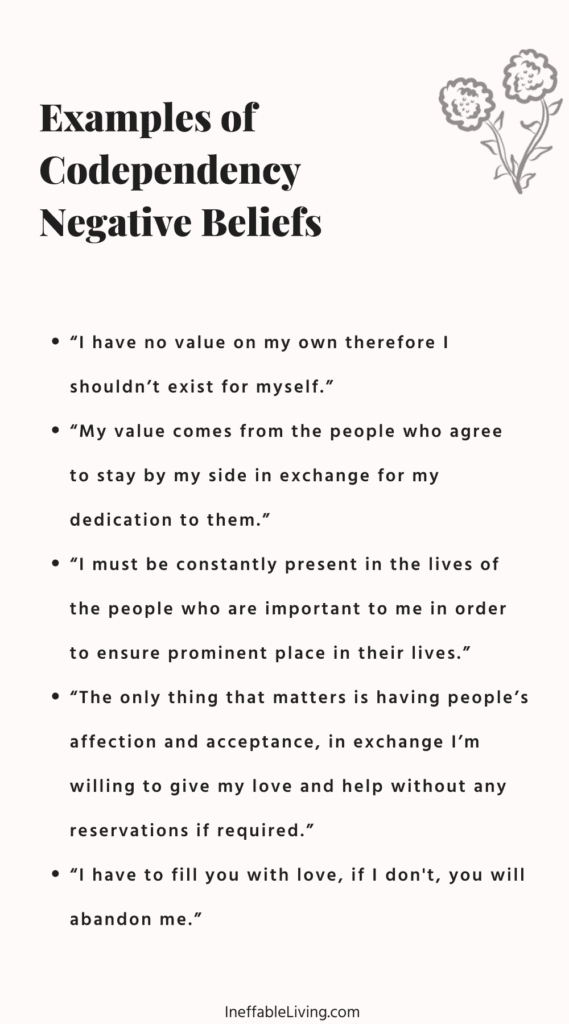
#5. Practice Forgiveness
Forgiveness is an important step in letting go of the past.
1. Self-Forgiveness
We can only love others to the degree we love ourselves. The same could be said about forgiveness: we can only forgive others to the degree we can forgive ourselves.
Forgiving yourself can be painful because it requires the willingness to go back in time and review your relationships, acknowledge your own abuse and harmful behaviors, and find the compassion to forgive yourself and restore self-trust.
1. In your journal, describe unhealthy patterns from your previous relationships. Allow yourself to feel the regret and grieve each of your actions without blaming or judging yourself.
2. Acknowledge that you’re not the same person you were back then and trust that you have learned an important lesson from your past experiences that will allow you to transform your future relationships.
3. Feel gratitude for the lessons learned and make a commitment to stop the hurtful behaviors.
2. Forgiveness of Others
Forgiving others will help you release any resentments, guilt, or anger that’s preventing you from moving on.
Forgiveness is not about the other person. It has nothing to do with whether or not they deserve it or have sought it.
Forgiveness is for you because you deserve peace.
1. Make a list of the people you need to forgive.
2. Write a letter to each person on your list – a letter that you may or may not send. Describe your pain and anger. Acknowledge that you cannot change what has happened in the past and that holding onto the anger is preventing you from moving on. In the end, write down that you forgive and release them for your own sake.
3. Another way to release someone from your past is to draw on a paper three columns: Regrets, Resentments, and Appreciation. Write down in each column every regret you can think of related to this person, every resentment you feel toward this person, and everything you appreciate related to them.
Related: How To Forgive And Free Yourself From Resentment And Bitterness?
If You Choose to Stay In the Relationship
If you decide that the relationship is safe and that you can heal yourself while being in the relationship, try the following suggestions:
1. Make a commitment to positive change. Attend a support group and read self-help books.
2. Start living in line with your values, and asserting your needs and desires.
3. Make an uncensored list of the things you need from your partner and encourage your partner to do the same. Exchange lists.
4. Set uninterrupted time together to deepen your intimacy. Share feelings, thoughts, and dreams.
5. Nourish the relationship through simple actions, such as expressing appreciation, and listening.
Related: Spiritual Relationship: a New Approach to Solve Problems and Enrich Your Relationship
Self-Love Affirmations
I know what my real needs are and how to meet them.
I freely and effectively express my feelings to others.
I act assertively and in ways that respect the feelings and boundaries of others.
I nurture my body and take care of my health
I enjoy activities that are meaningful to me
I make choices that reflect my inner values.
I enjoy close, intimate relationships with others.
I respond to challenges in life as opportunities for growth and maturity.
I actively create the life I want.
Get FREE Overcome Codependency Worksheets
References
- Portions of this article were adapted from the book Breakup Bootcamp: The Science of Rewiring Your Heart, © 2020 by Amy Chan. All rights reserved.
- Portions of this article were adapted from the book Is It Love Or Is It Addiction, © 1987 by Brenda Schaeffer. All rights reserved.
- Love Addiction – Addiction Center
- What Is Love Addiction? | Psychology Today
- Love Addiction: Definition, Symptoms, Causes, Treatment (verywellmind.com)
- Common Indicators of Love Addiction | Love Addiction Treatment TN (recoveryranch.com)
- Love Addiction: What It Really Means and How to Handle It (healthline.com)
- Addicted to love: What is love addiction and when should it be treated? – PMC (nih.gov)
- Is It Love or Addiction? Learn the Signs and Causes of ‘Love Addiction (psychcentral.com)
- Love addiction – Wikipedia
- Love Addiction: The Stages of Codependency | Psych Central
- Love or Codependency – How to Tell | Discover Recovery
- Healing from Patterns of Codependency and Love Addiction – Rising Woman
